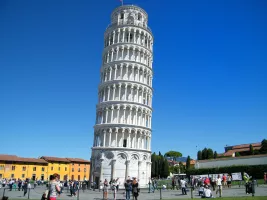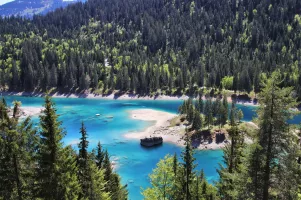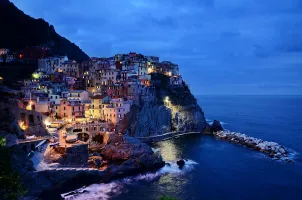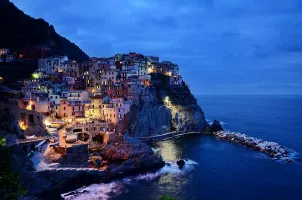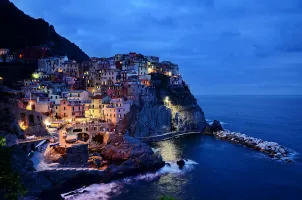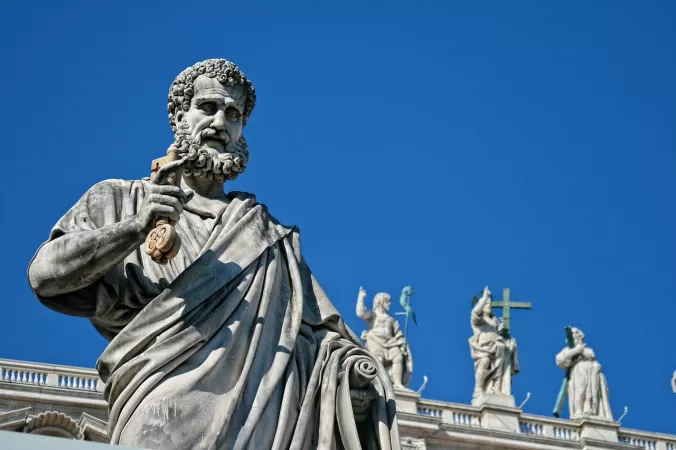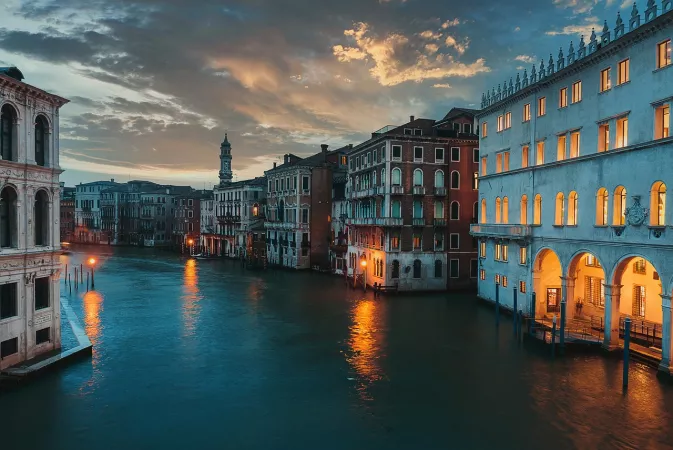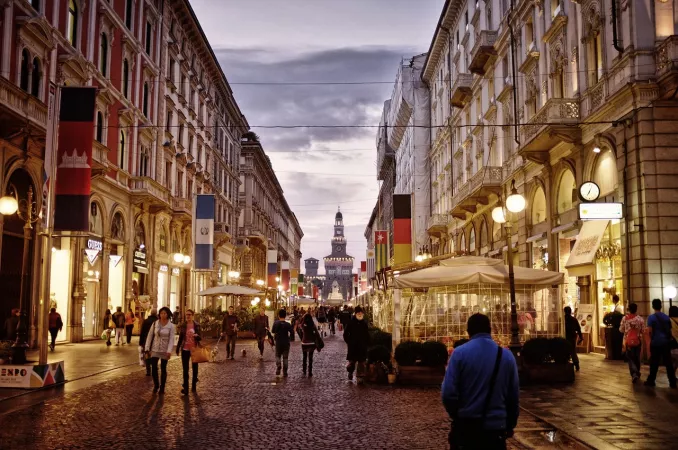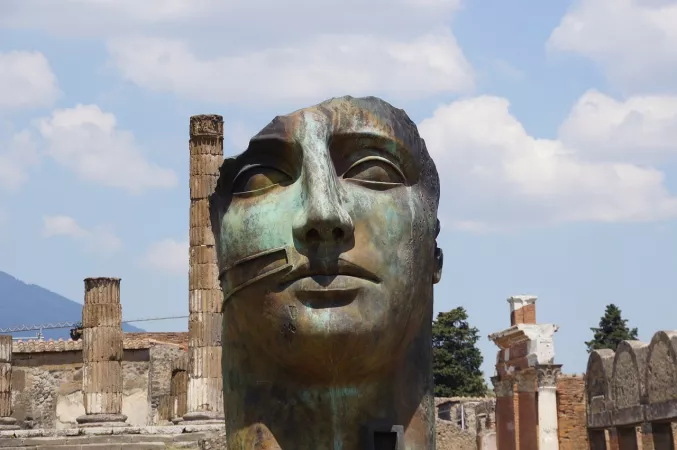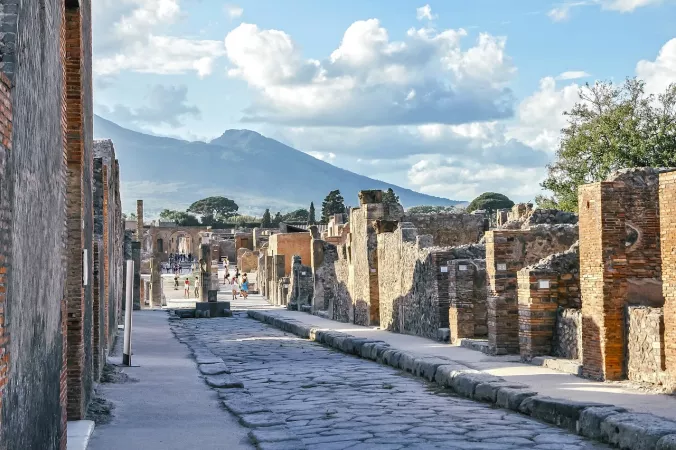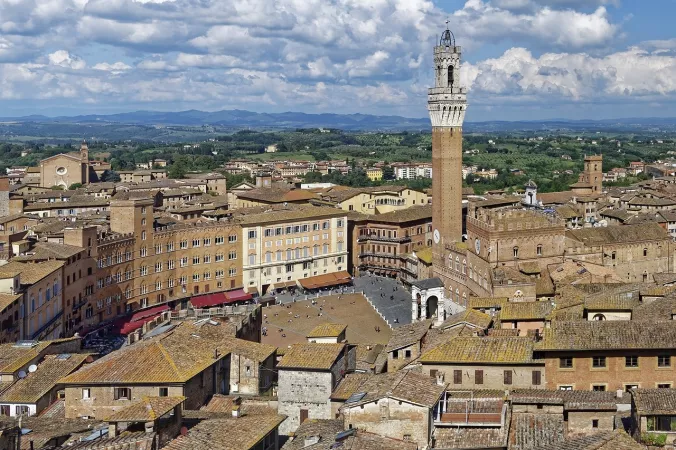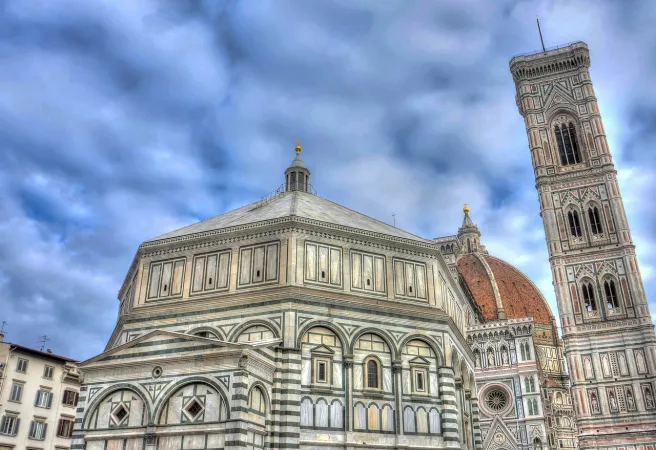
Florence Travel Guide
Florence, the capital city of Italy's Tuscany region, is renowned for its stunning Renaissance art and architecture. This city is considered the birthplace of the Renaissance and is home to masterpieces by artists such as Michelangelo, Leonardo da Vinci, and Botticelli. Florence's historic center is a UNESCO World Heritage Site, with attractions like the Florence Cathedral, Uffizi Gallery, and Ponte Vecchio.Top Attractions in Florence
- 1. Florence Cathedral (Duomo)
- 2. Uffizi Gallery
- 3. Ponte Vecchio
- 4. Galleria dell'Accademia
- 5. Piazzale Michelangelo
Florence is Famous for
Florence is famous for its rich history, breathtaking art, and stunning architecture.Top Attractions in Florence
- Florence Cathedral (Duomo)
- Uffizi Gallery
- Ponte Vecchio
- Galleria dell'Accademia
- Piazzale Michelangelo
What's Great about Travelling to Florence?
- 1. Rich history and culture
- 2. Stunning art and architecture
- 3. Delicious Italian cuisine
- 4. Charming cobblestone streets
What's Not So Great about Travelling to Florence?
- 1. Crowded tourist attractions
- 2. High prices, especially in peak season
- 3. Limited parking and traffic congestion
- 4. Pickpocketing and tourist scams
Travel Tips for Florence
- Research and book tickets for popular attractions in advance
- Use public transportation or walk to avoid traffic
- Be cautious of pickpockets in crowded areas
- Respect local customs and dress modestly when visiting churches
Important Florence trip information
- Ideal Duration: A minimum of 3-4 days to explore the city
- Best Time to Visit: Spring (April to June) and Fall (September to October) for pleasant weather and fewer crowds
- Nearby Airports and Railway Stations: Florence Airport (FLR) and Santa Maria Novella railway station
Top 34 Places to visit in Florence
Total
4,75,000
*EXCLUDING APPLICABLE TAXES 5.0 Ratings
( 20 Reviews )
( 20 Reviews )
Total
7,25,000
*EXCLUDING APPLICABLE TAXES 5.0 Ratings
( 20 Reviews )
( 20 Reviews )
Total
4,59,500
*EXCLUDING APPLICABLE TAXES 5.0 Ratings
( 20 Reviews )
( 20 Reviews )
Total
10,29,315
*EXCLUDING APPLICABLE TAXES 5.0 Ratings
( 20 Reviews )
( 20 Reviews )
Total
4,96,000
*EXCLUDING APPLICABLE TAXES 5.0 Ratings
( 20 Reviews )
( 20 Reviews )
Per Person
88,954
*EXCLUDING APPLICABLE TAXES FAQ's on Florence
Q1: What is the best time to visit Florence?
The best time to visit Florence is during the spring (April to June) and fall (September to October) when the weather is mild, and the city is less crowded. These months offer pleasant temperatures for exploring the city's attractions without the summer crowds. Additionally, you can catch events like the Maggio Musicale Fiorentino in May and the Festa della Rificolona in September.
Q2: Do I need a visa to travel to Florence?
Most visitors to Florence, as part of Italy, do not need a visa for short stays of up to 90 days within a 180-day period. However, it is essential to check the specific visa requirements based on your nationality. Ensure your passport is valid for at least three months beyond your intended departure date.
Q3: What are the must-visit attractions in Florence?
Florence is known for its rich history and art. Must-visit attractions include the iconic Duomo, Uffizi Gallery, Ponte Vecchio, Accademia Gallery (home to Michelangelo's David), and the picturesque Boboli Gardens. Don't miss the magnificent Florence Cathedral, Palazzo Vecchio, and the charming streets of the Oltrarno district.
Q4: Is Florence a safe place to travel?
Florence is generally safe for tourists. However, like any popular tourist destination, be cautious of pickpocketing in crowded areas. It's advisable to keep your belongings secure and be aware of your surroundings, especially in tourist hotspots and on public transport. Avoid walking alone in dimly lit areas at night.
Q5: What is the local currency in Florence and can I use credit cards?
The local currency in Florence, and Italy as a whole, is the Euro (€). Credit cards are widely accepted in hotels, restaurants, and shops in Florence. ATMs are also readily available throughout the city for convenient cash withdrawals. It's recommended to inform your bank of your travel plans to avoid any issues with card usage.
Q6: What is the local cuisine like in Florence?
Florentine cuisine is a delightful mix of fresh ingredients and traditional recipes. Try local specialties like Bistecca alla Fiorentina (Florentine steak), ribollita (Tuscan bread soup), pappa al pomodoro (tomato and bread soup), and cantuccini (almond biscuits). Don't forget to pair your meal with a glass of Chianti wine, a famous Tuscan red.
Q7: What transportation options are available in Florence?
Florence has an efficient public transportation system that includes buses and trams, making it easy to navigate the city. Taxis are also available but can be quite expensive. For more flexibility, consider renting a bike to explore the city at your own pace. Walking is also a popular option due to Florence's compact size.
Q8: Are there any cultural norms or etiquette I should be aware of when visiting Florence?
When visiting Florence, it's important to respect the local culture and traditions. Dress modestly when visiting churches and religious sites, cover your shoulders and knees. Greet locals with a polite "Buongiorno" (good morning) or "Buonasera" (good evening). Additionally, it's customary to ask for the bill (il conto) in restaurants as it's not automatically brought to the table. Respect for art and history is also highly valued in Florence. Remember to queue patiently at museums and galleries.
Ensure you adhere to these cultural norms to have a respectful and enjoyable experience in this beautiful city.
Q9: I am a travel agent. How can I buy travel leads of Florence?
Register yourself as a travel agent at agents.tripclap.com and then you can buy travel leads to Florence once your account is approved. For more details contact our support team at +91-8069186564 or support@tripclap.com
